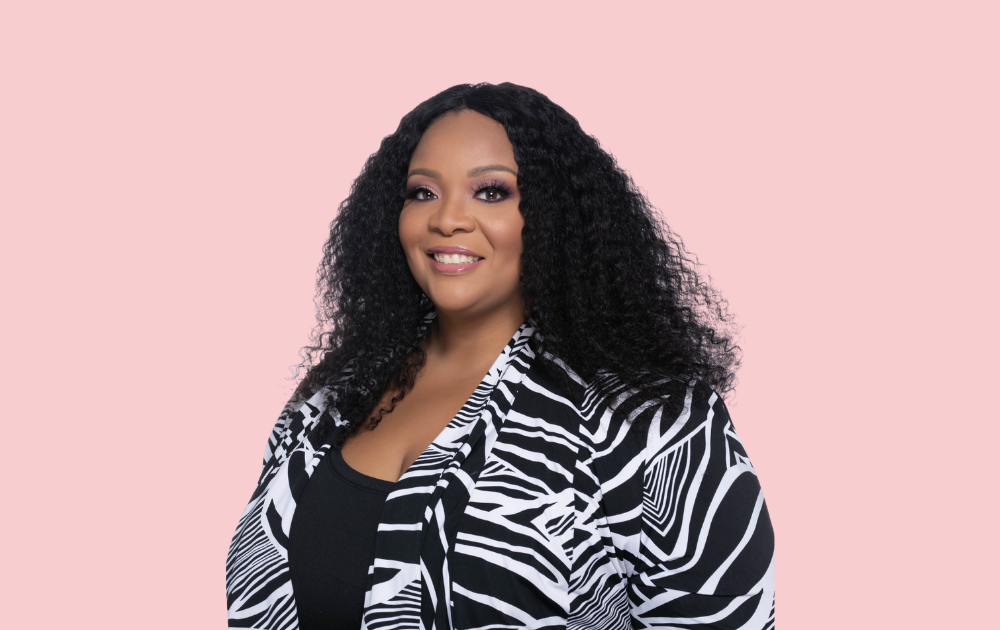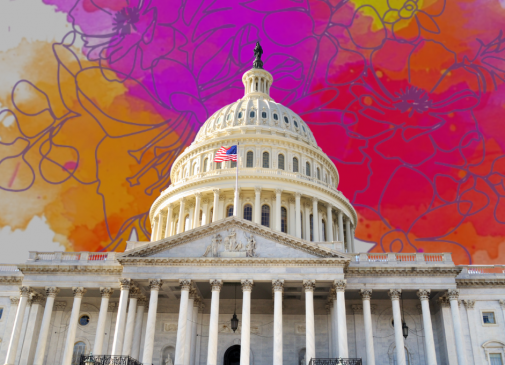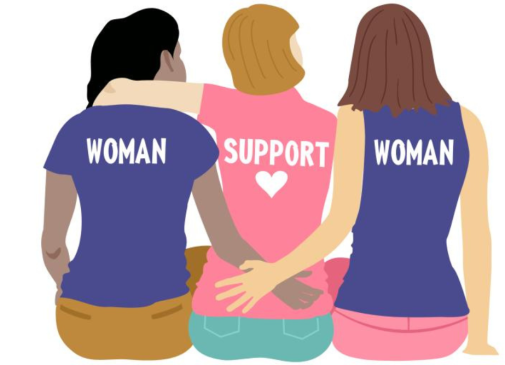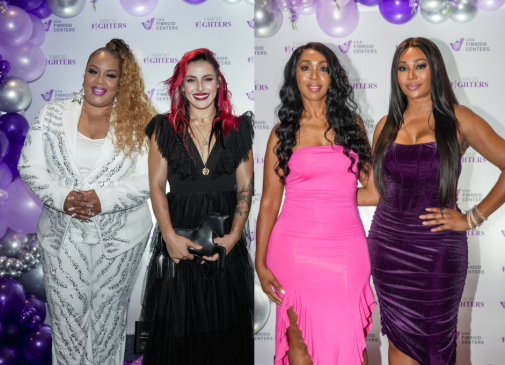
Kimberly Wilson burst into the technology health care space when her personal experience with fibroids inspired her to create a new tech start-up, HUED, to improve the patient care experience for Black and Latino populations.
Wilson’s fibroid journey began in 2017 after a significant weight loss. “I had gotten to a plateau that no matter how much I worked out or didn’t eat, I stopped losing weight. But even worse, I always had constipation and abdominal pain,” Wilson said.
Wilson tried laxatives, but nothing was working. At the same time, she was experiencing heavy periods and bloating. She admits to suffering in silence. “I felt it was difficult to get out of bed, but as black women, we’re taught you have to keep your chin up,” Wilson said.
During an out-of-town trip, excruciating pain resulted in Wilson going to the emergency room. “They did a various tests and told me I had fibroids,” Wilson said, “I had never heard of them.”
Hysterectomy or Living in Pain Were the Only Treatment Options Recommended
When Wilson heard they were benign tumors, she was very concerned. She felt there was a lack of lack of education about fibroids, the next steps, or even treatment options. “They told me I needed to return home and do further tests,” Wilson says, “because not only did I have one fibroid, but I also had multiple tumors.”
In fact, Wilson had more than 30 fibroids on her uterus, with the largest being the size of a grapefruit. As a result, she experienced frequent urination, constipation for weeks at a time, back and leg pain, and pelvic pressure. “I was having severe abdominal pain that would have me crouched on the floor, and nothing was able to help,” Wilson said.
Wilson returned home and visited four different health care providers. Despite telling doctors her abdominal pain was so severe it kept her from getting out of bed, she was merely recommended an over-the-counter pain med. “They either dismissed my pain and trauma altogether or stated that a hysterectomy was my only option,” says Wilson.
Wilson was convinced that this could not be her only viable option to combat her fibroids.
“As a 30-year-old Black woman, I was being told I was going to be in pain or I’m never having children was very traumatic,” she recalled. Research and experts argue that hysterectomies are over prescribed and overperformed in the U.S., especially for fibroids and especially for women of color. In fact, Black women are twice as likely as white women to undergo a hysterectomy.
Improving Care for Black and Latino Patients
Black and Latino patients often have their pain and health problems dismissed by doctors due to racial disparities that have been well documented by research. When our newest ambassador, Kimberly Wilson, experienced the lack of culturally competent doctors first-hand, it inspired her to find a solution, especially for women seeking fibroid care.
“Unfortunately, being black or Latino, or being categorized in different cultural scenarios, care and treatment tends to be worse,” Wilson says. “Following a pandemic when you think about marginalized populations that were disproportionally impacted, you realize it’s also maternal health and fibroids.”
Seventy percent of women experience uterine fibroids by the age of 50, according to the University of Michigan Health Lab. Black women are three times more likely to be diagnosed with fibroids than white women. They are also more likely to develop fibroids at an earlier age and experience more severe symptoms caused by larger and more fibroids. In addition to the cramping and heavy periods fibroids can cause frequent urination, painful sex, lower back pain, infertility, and recurrent miscarriages.
Wilson’s fibroid journey inspired her to create HUED, to improve patient care experiences for Black and Latino populations. The platform connects these patients with culturally competent providers to receive the care that they need and deserve.
“I wanted to create a platform and a space for people to be their own advocate within the healthcare space and go to doctors of color who were culturally competent and did not ignore or dismiss their pain, especially when something can be life-changing,” Wilson explained.
“We often hear that Black or Latino woman are dismissed navigating the health care space. I don’t have a health care background, but I experienced first-hand a problem that needed a solution.”
Brining Awareness and Education to Fight Fibroid Disease
Fibroid Fighters’ Founder and CEO Yan Katsnelson believes that it’s vital to bring awareness to patients, physicians, and the medical field about minimally invasive procedures that successfully treat fibroid disease.
“Fibroids are a common disease, and many practitioners don’t know Uterine Fibroid Embolization (UFE). It’s a very simple treatment that can be done in the office,” Katsnelson said. “It takes 20 to 30 minutes and is done with light sedation. Patients can go home in a couple of hours and go back to living a normal life two to three days later.”
Wilson ultimately underwent a myomectomy, but she wished she had learned more about UFE treatment before she had to make a treatment decision. “UFE sounds so much less painless and a simpler option than undergoing an invasive surgery,” she said. “As I was on my fibroid journey, I realized how fibroids affected fertility. I wanted to provide information and options for black women, because we don’t know what our fertility levels are until you’re planning a family, at which point it could be too late. You need to start thinking about this in your 20’s, so you understand your options for later in life.”
Starting the Fibroid Conversation
As an ambassador, Wilson is excited about starting more conversations among women so that they can be better advocates for their own health. “There needs to be more conversations,” Wilson emphasizes. “Changing perception and bringing more education around fibroid disease starts with conversations.”
You can help starting conversations around fibroids—by talking with friends, family, and health providers. “When I found out I had fibroids,” Wilson said, “I started talking to people only to find out that so many women have fibroids, but we never talked about it.”
We invite you to join the conversation. You can read other ambassador stories in our blog and watch our Break the Silence, Break the Behavior video series to get more information about fibroids and the latest treatment options. If you have suffered from fibroids, share your story to help other women learn more. We also can help you with information about options to treat fibroid disease.







